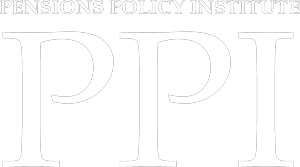Press
We are the UK's leading independent authority on pensions and retirement policy. We conduct rigorous, impartial evidence-based research that shapes better retirement outcomes.
Reports and Briefing Notes
The Wellbeing, Health, Retirement and the Lifecourse project
For the last three years, the Wellbeing, Health, Retirement and the Lifecourse (WHERL) project has been investigating a crucial question for ageing societies: how inequalities across the lifecourse relate to paid work in later life in the UK.
The project brought together an interdisciplinary consortium of academics whose aim has been to investigate lifecourse influences on later life work and the implications for wellbeing, health and financial outcomes of working up to and beyond State Pension Age.
This issue is of growing importance since the UK, in common with many other Governments across the world, is implementing policies to encourage longer working lives. These policies include increases to the State Pension Age (set to rise to age 67 by 2028), removal of default retirement ages, and the Government’s ‘Fuller Working Lives’ and ‘Age Positive’ initiatives. These aim to encourage older individuals to engage with paid and/or unpaid work later in life, as well as offering guidance to employers on effectively managing an ageing multi-generational workforce.
These policy reforms affect millions of people, yet their implications for health, wellbeing and financial circumstances are unknown. Do these policies harm, benefit or have little effect on the population? The WHERL project examined the lifelong drivers affecting the complex relationship between paid work in later life, health, wellbeing and retirement income, in order to answer this question.
This report brings together research on a number of cross-cutting factors that can affect the likelihood that individuals will work up to and beyond State Pension Age, as well as the impact this can have on their health, wellbeing and financial circumstances, and draws out the implications for policy and inequalities.
Join our mailing list
Signup to receive all the latest news from the PPI



